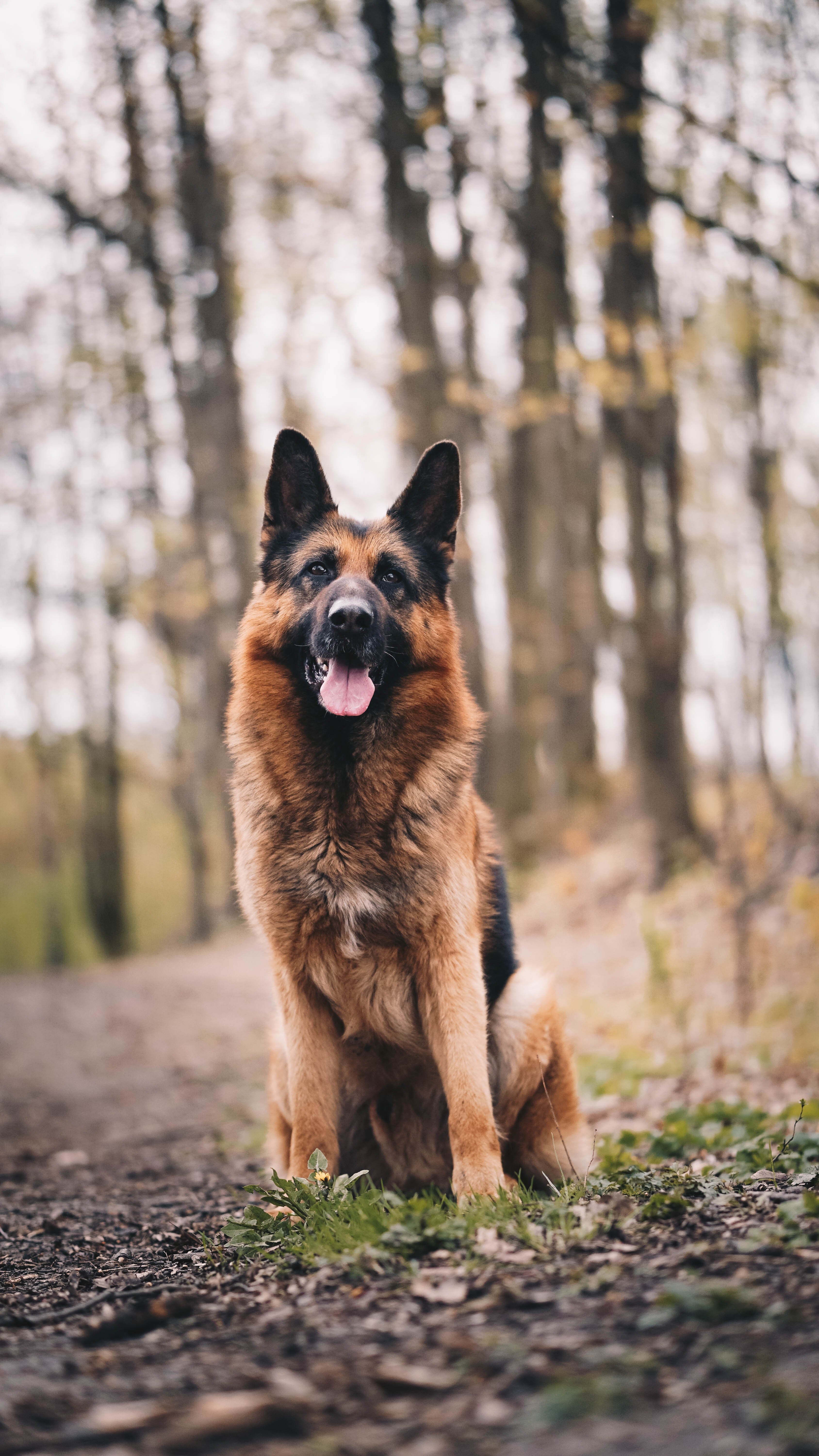German Shepherds are one of the most widely recognised and popular dog breeds. Intelligent, eager to learn, highly trainable and adaptable, they are known for their versatility as working dogs in areas such as police and military work, search and rescue, drug detection, service roles, and more. As a family companion though, they are both loyal pets deeply devoted to their owners as well as excellent guardians that bond closely with children.
At A Glance:
Life Expectancy: 12 to 14 years
Size: Large
Temperament: Loyal, Intelligent, Protective
Coat Colour: Various, including black and tan, sable, and solid black
Best For: Active individuals or families looking for a loyal and intelligent companion, suitable for various activities and roles, including working, protection, and family life
Characteristic |
German Shepherd |
|---|---|
| Affectionate Level | Loyal and affectionat |
| Friendliness | Social with family, may be reserved with strangers |
| Exercise Needs | High energy, requires daily vigorous exercise |
| Training | Highly intelligent, trainable, benefits from early socialization |
| Grooming | High maintenance, regular brushing, and occasional baths |

History:
The herding hills of Germany were the birthplace of the German Shepherd. Dating back to the late 19th century, these majestic beasts were crafted with purpose. Captain Max von Stephanitz, the mastermind behind the breed, wished to create a versatile working dog - a four-legged hero ready to herd sheep by day and protect them by night. Over the years, German Shepherds proved their mettle, earning roles in police, military, and search and rescue operations. Their legacy barks proudly today as one of the world's most iconic and intelligent breeds.
There is also a cinematic thread for this breed. Enter Rin-Tin-Tin, the four-legged hero of silent films, who stole hearts across the globe. Their popularity vastly increased, making the German Shepherds one of the most sought-after breeds for pet parents everywhere.
Breed Appearance:
This furry force of nature stands strong with a height ranging from 55 to 65 centimetres, boasting a double coat, with colours like sable, black and tan, or black and red. They have alert, expressive eyes showcasing their sharp intellect. A well-balanced body, not too bulky, not too lean, supports their athleticism. And let's not forget those signature ears—erect and perky. These loyal guardians stand tall with a regal aura and a keen sense of purpose.
German Shepherd Temperament:
Known for their unwavering loyalty, German Shepherds are born guardians. This breed's courage and fearlessness are evident in their roles as some of the finest police and military dogs. They have a strong sense of devotion and will put themselves in harm's way if they feel their family is in danger. Since friendliness is not their strongest suit, earning the trust of a German Shepherd is nothing short of a reward!
They are naturally cautious around strangers. Early socialisation is very important, fostering well-behaved interactions with kids, babies, and other pets. They have a high intellect, making them easily trainable. Their expressive nature extends to vocalisations, as German Shepherds are natural talkers, using barking as a means to convey boredom or alertness. With proper training, these tendencies can be controlled.
German Shepherds thrive when they have a purpose. They love to be busy with training sessions, puzzles, interactive games, or acting goofy with their families!
Caring For A German Shepherd:
Diet & Nutrition:
Keeping your German Shepherd in top-notch shape starts with a balanced and nutritious diet. These active dogs thrive on a diet rich in high-quality protein to support their muscle health. Look for dog food formulated for large breeds, ensuring it meets their energy needs. A mix of lean meats, whole grains, and veggies will keep their meals interesting and provide essential vitamins.
Germans are prone to tummy issues like bloating and stomach torsion, so do try to provide easily digestible proteins. Feeding in small portions at regular intervals can also help. They also have sensitive skin, so try to factor in ingredients that are not commonly allergic to dogs.
As always, consult your vet for personalised dietary recommendations based on your German Shepherd's age, weight, and activity level.
Training:
Training your German Shepherd can be a fun experience, thanks to their intelligence and eagerness to please. Start with basic commands like sit, stay, and come, using positive reinforcement like treats and praise. Regular, short training sessions work best, keeping it fun and engaging for your pup. Socialisation is very important; exposing them to various people, places, and other pets to ensure they grow up well-adjusted. Consider enrolling in obedience classes to strengthen the bond with your German Shepherd and instil good behaviour.
Health:
German Shepherds are typically a hardy and healthy breed, but like any dog, they are prone to certain health conditions. Because they are active, high-energy dogs that love working and sports, hip and elbow dysplasia can sometimes be a concern in the breed. They are also at a heightened risk for gastrointestinal issues like bloat and stomach upset. Their thick double coats mean grooming requirements to prevent skin problems and allergies. While German Shepherds have an increased likelihood of arthritis and bone spurs as they age, keeping their weight down and providing joint supplements can help them stay limber into their senior years. With high intelligence and a strong desire to work, this breed requires ample mental stimulation as a key component of their good health and to prevent anxiousness or destructive behaviours from boredom or confinement.
Grooming & Maintenance:
While German Shepherds boast a double coat that aids in temperature regulation, grooming remains a vital aspect of their care. Brush their coat every day to minimise shedding and prevent matting, increasing frequency to twice a day during shedding seasons. Bathe them as necessary, typically every two to three months or sooner if they get notably dirty. Prioritise regular dental care by brushing their teeth and offering dental chews or toys. Keep their nails trimmed, ears clean, and monitor for signs of skin issues.
FAQs:
Are German Shepherds aggressive?
When properly socialised and trained, German Shepherds are very loyal, level-headed companions. However, their guarding tendencies mean early and ongoing training is essential for a well-behaved temperament.
Can German Shepherds be raised in apartments?
Although energetic, with enough daily exercise and stimulation, German Shepherds can adapt to apartment living. Access to walks and play is imperative so being near parks helps. Their need to be with their family makes small spaces work. Do not leave them alone for long hours though. They get bored easily and may act out if they don't have the space the expel the excess energy.
Are German Shepherds high maintenance?
Yes, German Shepherds do need substantial grooming to manage shedding and prevent matting or skin issues. Their exercise needs are also greater than many breeds. However, their trainability, bonding nature and moderate activity sprints make their care easier overall. Investing in their enrichment pays off.











